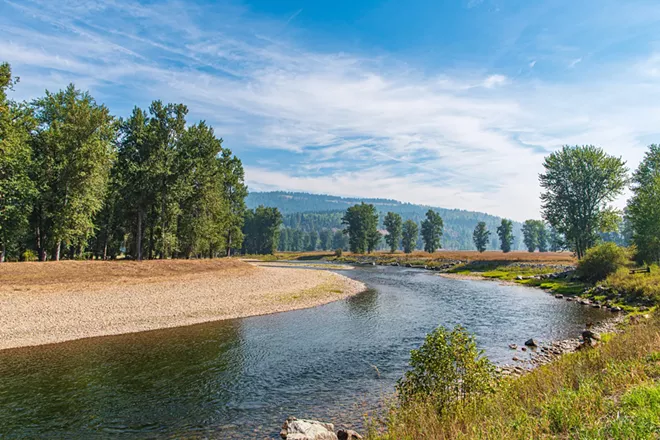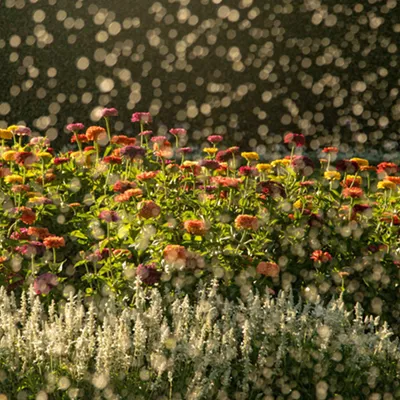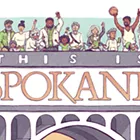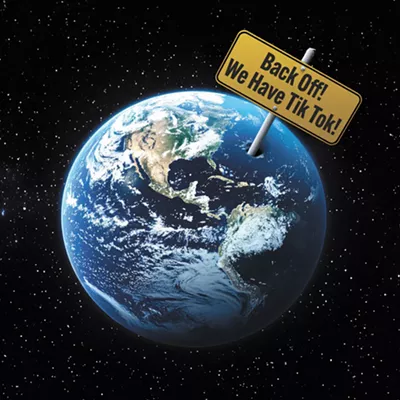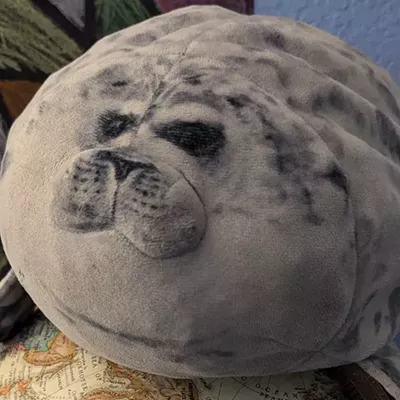I kneel with my almost-4-year-old niece, C, in a patch of lawn outside the cabin our family is renting on the St. Joe River. We press our faces toward the ground, pushing our palms into the dirt.
"See how it's way more than grass?" I whisper, pointing out a tiny fern, a stem dotted with blue flowers, a patch of clover. "You just have to look very, very closely."
We notice a lemon-yellow grasshopper the size of C's pinky nail and creep after it, toward the edge of the hillside leading down to the water. When it hops out of sight, C points into the brush and gasps.
"If we look very, very closely, we might see a mama moose and a baby moose!" she says.
I grin. She's a smart cookie, grabbing my phrasing and recalling the majestic animals she spotted the first night at the cabin. And she's right — we're above the path they'd followed.
"We sure might," I say.
We follow a new grasshopper, find more flowers, sniff the green smells of the plants we crush as we go. C's beloved (and bedraggled) stuffed bunny, Bumper, hops along with us.
"If we look very, very closely, we might see Bumper's baby!" C says. (We've been on the lookout for bunnies all week, second only to garter snakes.)
C is the perfect companion for what I've deemed a nature walk, though it's been more of a crawl. After a bout of carsickness on the way to the cabin, she's returning to her wide-eyed, bubbly self — yet still moving at a slower pace than the bigger kids, who are off fishing (or climbing rocks while Grandma fishes). She's a sunny, curious child, thrilled at every beautiful detail the world offers her.
We climb a boulder and she asks why the moss on top is brown. We look closer and see there are several types of moss, rusty red and maroon and muddy gray, and C correctly deduces that they might get greener if it rains.
She asks if we can look for birds, and we stare in silence at a patch of sky above the pines for a while.
I think about what it means to look very, very closely. I'm reminded of the poet Adrienne Rich's insight on the meaning of truth: "There is nothing simple or easy about this idea ... truth is not one thing, or even a system. It is an increasing complexity."
I bristled a bit the first time I encountered that quote. As a former journalist, perpetual student of science, and person of faith, I have a bit of a stake in the existence of truth.
But Rich's idea stuck in my head and wouldn't leave. Her framing makes truth a journey — something to be pursued, knowing you can never fully grasp it. Knowing there's always more to know.
I believe truth is real, and I believe no one's got a handle on it. It would be so comforting to say, "This is right and this is wrong, and aren't I lucky to know the difference all the time?" But I think we see every day in America how well that works.
A black bird swoops down from one of the pines, putting C and me on alert.
"That's a crow. Or a raven?" I say. "Actually, I don't know."
I'm not good at saying that, but I'm working on it. Working on asking questions instead of insisting on answers. Working on listening instead of assuming. Learning to be quiet and pay attention. Leaving myself open to whatever truths reveal themselves upon closer inspection. Letting myself be surprised by what I see.
C glances over the landscape, then back at me, eyes full of mischief. "If we look very, very closely, we might see a screaming monkey!"
"Well, it's not probable," I say, "but it's possible."
We laugh — and look out into the trees. ♦
Tara Roberts is a writer and educator who lives in Moscow with her husband, sons and poodle. Her novel Wild and Distant Seas is forthcoming from Norton in 2024. Follow her on Twitter @tarabethidaho.

